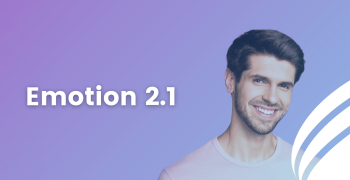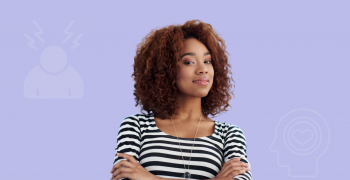
Kindness is an altruistic way of behaving. It means to do good for others without expecting something in return. Understanding other peoples’ emotions is a skill, and being kind has been proven to be beneficial in the long run. Kind actions offer an opportunity to learn more about peoples’ honest emotional reactions, as well as benefiting from the feel-good hormones that come with being generous. Here are the three ways that being kind and considerate will help you increase your wellbeing and improve your emotional intelligence.
“Helper’s high”
Kindness induces a “helper’s high”, which is a biological and emotional high that appears after acting altruistically. Oxytocin, the feel-good hormone, floods the body after giving gifts, rewarding a person for their generosity. Doing kind acts for others without expecting something in return allows you to see the true emotional state of a person. When they realize there aren’t any ulterior motives, they’ll be more likely to mirror that honesty. This allows us to learn from other peoples’ reactions, and will help build stronger relationships and connections, as well as increasing trust in one another. This can also help a person in reading expressions and body language better. In the long-run, benefiting from the helper’s high and increased social interactions permets a person to learn more efficient communications skills amongst reaping all the benefits of an oxytocin high.
Giving to yourself by giving to others
Kind actions are likely to connect a person to the people surrounding them. Have you realized the kind actions taking place around you lately? Maybe you’re already adding kindness to your day to day life. Due to the global pandemic, we are all more isolated than ever before, but also more connected since we all fight the same malevolence daily. The National Institute of Health (U.S.) conducted a study on the emotional responses in the brain, and found a connection between the people who regularly donate and the brain regions that light up for the emotions of empathy, trust, pleasure and social connectedness.
People who take responsibility for helping out their community and performing kind actions feel a deeper connection to their surroundings as well as other people, and it allows them to emotionally bond with others easier. It’s a positive witch’s cycle, where the more you choose to perform one positive behaviour, the more you reap the benefits and continue to perform that original positive behaviour. How about trying kindness out, asking a neighbour or a relative if you can help them out in any way, participating in community efforts against the pandemic or simply by calling someone up and really listening to how they’re doing in the moment? You might be surprised by how good you feel.
Increase in overall health
Kind actions have also been directly linked with an increase in overall health. In a 5-year study of 2,000 individuals, or 40 families from different backgrounds,the researchers monitored and analyzed the families’ lifestyles and spending habits. The kind were in 48% greater overall health than the families who didn’t place importance on performing good deeds. The study also revealed that individuals who participated in charities and associations had much lower depression rates. The more people concentrate on giving for the sake of doing good, the more their health will increase. It’s biology’s way of encouraging us all to take care of each other, which is why kindness is one of the most important actions a person should integrate into their lives and routines.
With the current world climate of an ongoing global pandemic, it’s more important than ever to support our families, friends, coworkers, clients and even the strangers we cross on the street. Everyone is living through the same struggles and difficulties, and the best way to combat the negative feelings of loneliness, fear and uncertainty is to be kind and share the positive while supporting all your relationships. It will help in increasing health, lowering the risk of depression, and has proven short-term as well as long-term health benefits.





